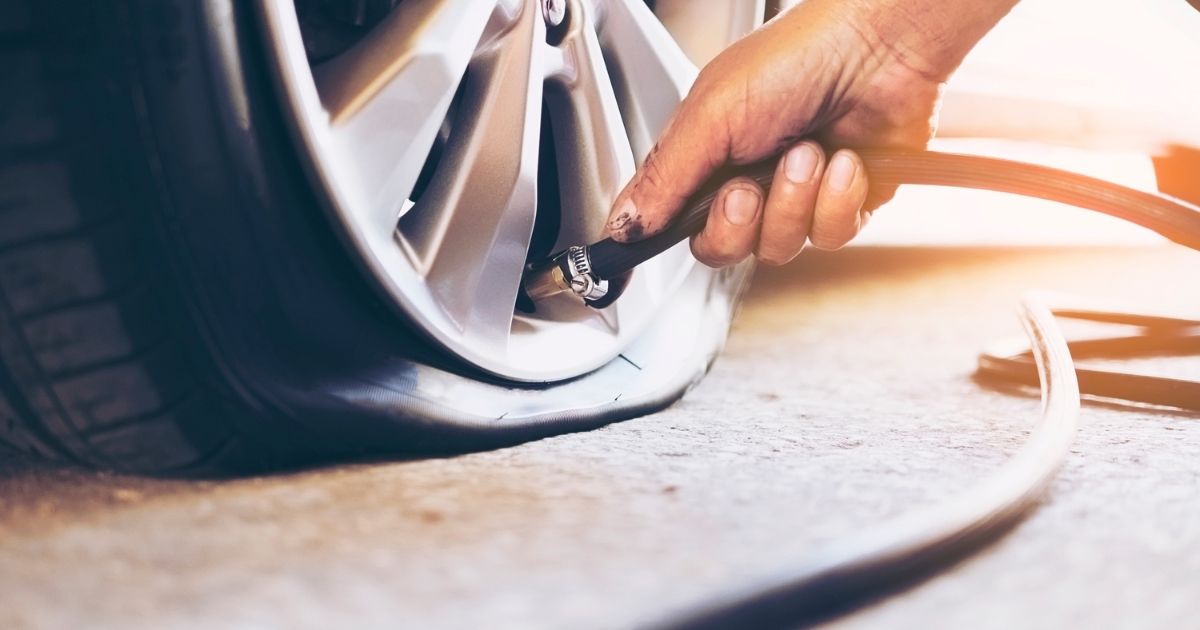When faced with the frantic schedule of everyday life, we tend to disregard things that do not seem very important at first. Checking your underinflated tires is one example you may think can wait for your attention. However, often, it is too late, and your tire fails at the most inopportune time. It is essential to recognize the signs that your tires are underinflated and to fix the issue immediately, as it is a true safety hazard should you continue driving on them.
According to the National Highway Traffic Safety Administration (NHTSA), tire problems like underinflated tires cause almost 11,000 vehicle accidents annually. Maintaining proper tire pressure in your tires helps them perform correctly and efficiently. Driving on underinflated tires causes many dangers:
- Increased risk of accidents: One of the most significant dangers associated with underinflated tires is an increased risk of accidents. When a tire lacks the proper air pressure, it becomes more susceptible to blowouts and flats. This can be especially hazardous at high highway speeds or adverse weather conditions. The loss of control resulting from a blowout can lead to catastrophic accidents, jeopardizing the lives of the driver, passengers, and other road users.
- Tire wear and tear: Beyond the immediate financial implications of decreased fuel efficiency, driving on underinflated tires leads to wear and tear. The uneven distribution of weight and added stress on the sidewalls can cause tires to wear out prematurely. This not only necessitates more frequent tire replacements but also compromises the vehicle’s overall safety.
- Impact on vehicle performance: Underinflated tires can significantly affect a vehicle’s performance. When tires are not properly inflated, it leads to increased rolling resistance. This reduces fuel efficiency, causing the vehicle to consume more fuel to cover the same distance.
- Heat build-up: Underinflated tires generate excess heat during operation due to increased friction between the tire and the road surface. This heat buildup can lead to a phenomenon known as a “tire blowout,” where the tire’s structural integrity is compromised, causing it to burst.
- Impaired handling and braking: Properly inflated tires are crucial in a vehicle’s handling and braking capabilities. Underinflated tires compromise the ability of a vehicle to respond to steering inputs promptly. This can result in sluggish handling and decreased maneuverability, especially in emergencies. Additionally, the braking distance of a vehicle is significantly increased when the tires lack sufficient air pressure, further elevating the risk of collisions.
The Signs of Underinflated Tires
It is important to recognize the symptoms of underinflated tires before it is too late to prevent a tire blowout or otherwise damage to your tires. These signs include:
- TPMS warning light: Modern vehicles must now be equipped with tire pressure monitoring systems (TPMS) that alert you when your tire pressures are not what the factory recommends. Some warning systems even tell you how much air pressure is in your tires so you can check them and adjust accordingly.
- Unusual noises: When your tires are underinflated, you generally hear a flapping noise while you drive. The noise could mean that your tire is slightly flat, but it could also mean it is entirely flat and ruined.
- Inability to steer: Poor handling is generally a good indication that your tires are flat, which causes the inability to steer or maneuver.
- Poor fuel economy: Driving on underinflated tires can cause poor fuel economy.
Driving on underinflated tires is not a risk worth taking. The consequences, ranging from decreased fuel efficiency and increased maintenance costs to the heightened risk of accidents and injuries, underscore the importance of regular tire maintenance. Regularly checking and maintaining proper tire pressure is a simple yet effective way to ensure your vehicle’s safety, performance, and longevity.
Delaware County Car Accident Lawyers at Eckell Sparks Advocate for Accident Victims Injured by Negligent Drivers
You will need the best legal guidance if a negligent driver has injured you. Our Delaware County car accident lawyers at Eckell, Sparks, Levy, Auerbach, Monte, Sloane, Matthews & Auslander, P.C. can help. Call 610-565-3701 or complete our online form for an initial consultation. With offices in Media and West Chester, Pennsylvania, we proudly serve clients in Delaware County, Chester County, and Montgomery County.

